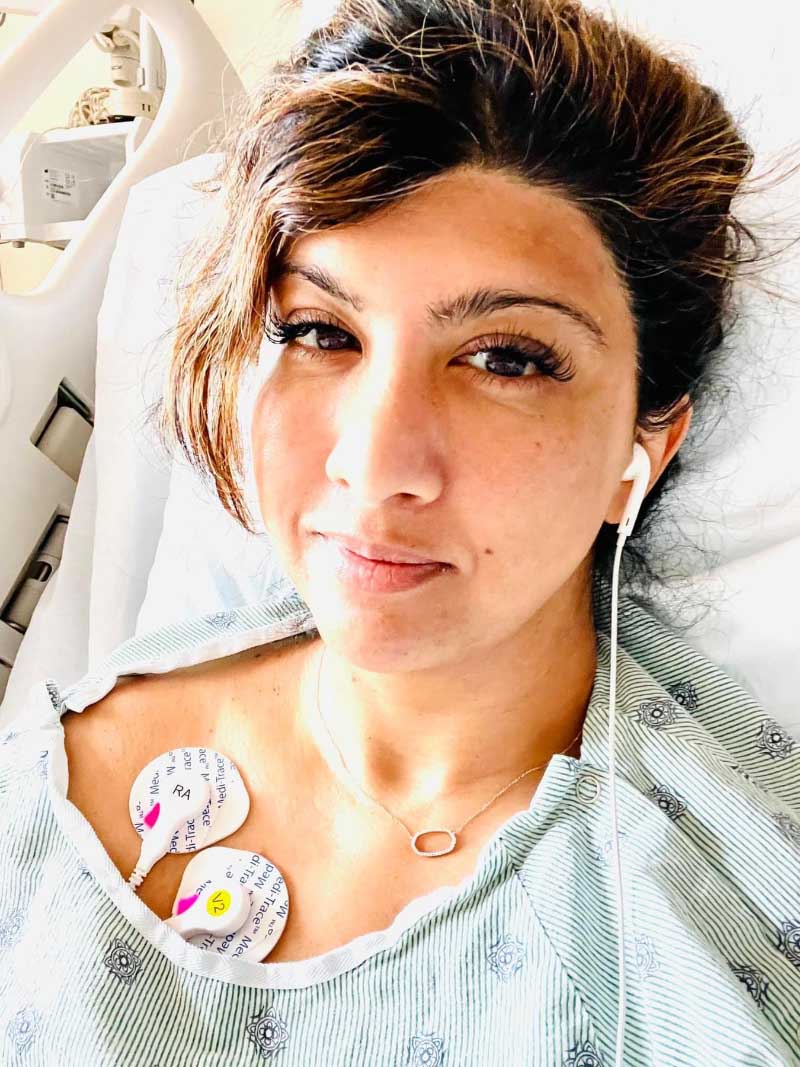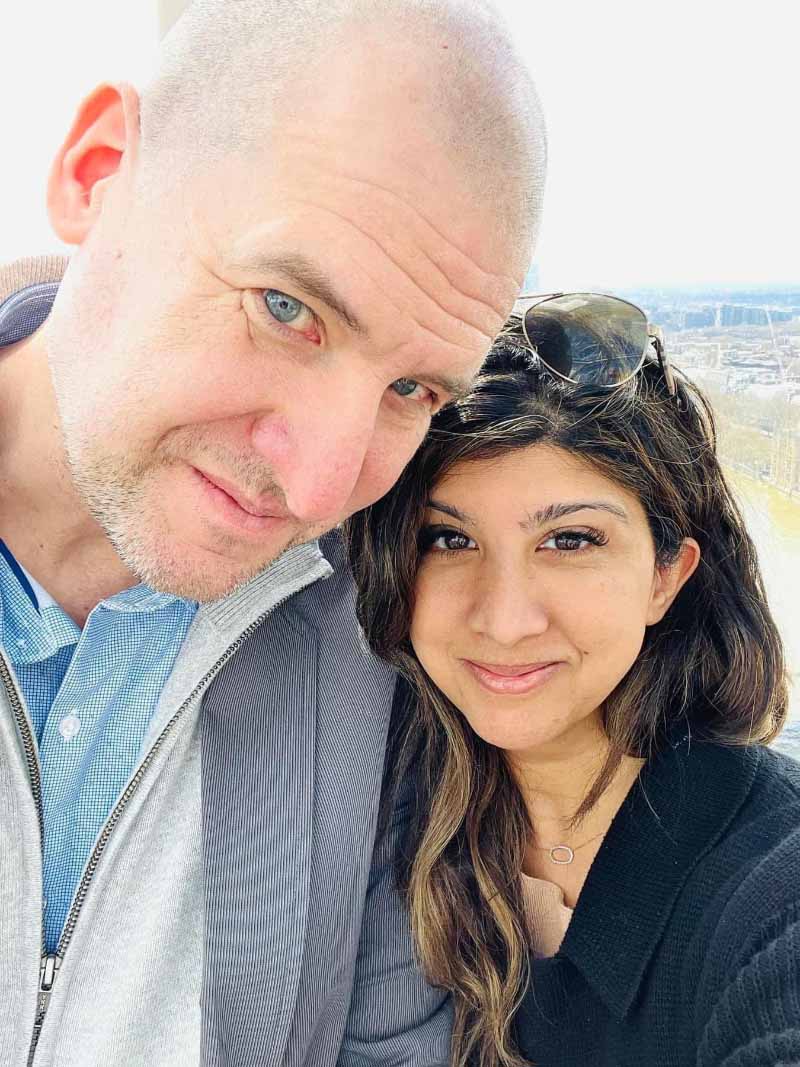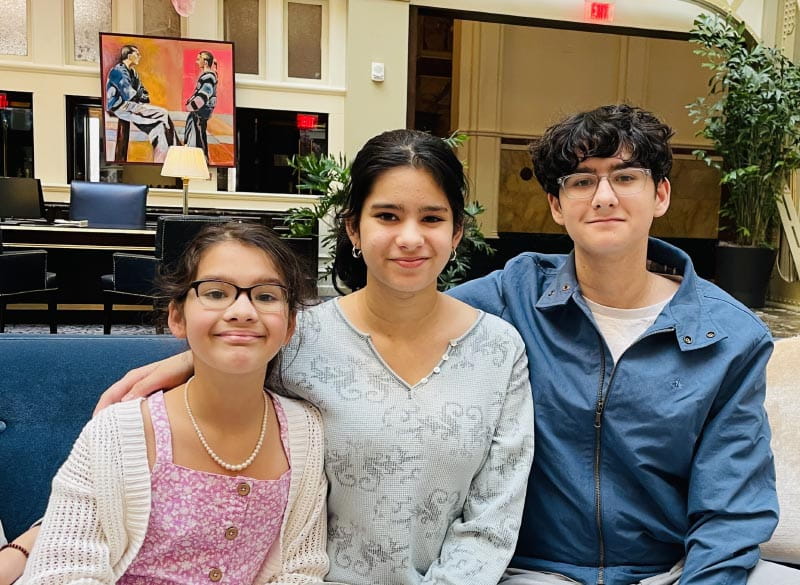After Billy Joel and Stevie Nicks concert, mother of 3 had a heart attack
By Deborah Lynn Blumberg, American Heart Association News

Last fall, 46-year-old lawyer Priti Langer took a trip to Baltimore with a group of fellow women to see singing greats Billy Joel and Stevie Nicks perform.
The outing was a 50th birthday celebration for a friend and neighbor in Langer's Fairfax, Virginia neighborhood. When Langer rolled her suitcase into the hotel, she felt a flutter in her chest. She dismissed the sensation, attributing it to the flurry of activity as they arrived.
When Langer and her friends found their seats for the Saturday night concert, she felt a second flutter. That's odd, she thought. But then the group focused on dancing and belting out tunes during the show. Back at the hotel, she and the friend she was sharing a room with went to bed.
At 3 a.m. Sunday, Langer woke up with a squeezing pain in her chest. She turned on one side, then the other, trying to get comfortable. Her first thought was, "Could I be having a heart attack?" But she was young and didn't have any heart issues.
Her mind raced through other possibilities. Maybe it was indigestion?
When the pain got worse, she woke up her friend.
"I'm just not feeling well," Langer said, clutching her chest.
The friend handed her a bottle of antacid. Langer took one, then promptly threw up.
She grabbed her chest and slunk to the floor. Her jaw and arm were also hurting.
The friend turning 50 was a nurse. Langer's roommate rushed to wake her up. When the nurse arrived and saw Langer, Langer and her nurse friend decided to call 911. The nurse asked for a cardiac ambulance.
The women helped Langer into a rolling chair and wheeled her to the lobby so EMTs could evaluate her right after arriving.
EMTs questioned Langer: Was she feeling anxious? Had she overdone it at the concert? No, she said to both. They asked her to step into the ambulance. Langer was surprised they asked her to climb the tall steps in her state.
Inside, they asked if she was sure she wanted to go to the hospital. Sensing that they weren't taking her complaints seriously, she calmly told them: "I'm having debilitating chest pain. Yes, I want to go to the hospital right now." Finally, the ambulance left, with her friends following close behind.
Meanwhile in Fairfax, her husband, Jeff Langer, was in a deep sleep when his phone rang. His heart raced to hear a friend of Priti's from the concert on the line.
"Priti's not in good shape," she said. "We're headed to the ER. I'll update you soon."
In the ambulance, EMTs did an echocardiogram. It's a test that measures the heart's electrical activity. It showed Priti's heart was beating erratically.
In the emergency room, as her chest pain continued, staff asked Priti questions like those posed by the EMTs. Again, she stayed calm, politely answering questions, even though she believed she urgently needed care. She was exasperated to repeat herself.
Langer thought, "Will I die while answering questions and never get treatment?" As the minutes ticked by, she redirected their questions to her pain.
Eventually, more testing showed her ejection fraction – a measure of how well the heart pumps blood to the body – was around 30%; a healthy level starts at 55%.
Priti was having a heart attack.
The cause was a spontaneous coronary artery dissection, or SCAD, a tear in the wall of a heart artery that can block blood flow to the heart, leading to a heart attack or cardiac arrest. Medical staff gave her pain medicine. She needed stents put in right away to open up her artery to let blood flow normally.
As they prepped her for the procedure, Priti felt relieved. Thank goodness they know now what's wrong, she thought, and I can get the right treatment.

At home in Virginia, about an hour's drive away, Jeff packed a bag for Priti while their three children slept – twins Kieran and Nadia, 16, and Uma, 10. He packed books and homework to occupy Uma in the car for their eventual drive to see Priti. He waited by the phone.
Finally, several hours later, it rang. The caller was Priti.
"I had a procedure where they put stents in. I'm OK," she said.
Jeff broke the news to the kids that mom was in the intensive care unit after a heart attack. As he drove to Baltimore, Jeff teared up behind his sunglasses.
They were relieved to find Priti awake and making jokes.
Jeff brought Priti's work laptop and charger with him, as requested, but hid them from her in a closet so she could focus on healing, not work.
A day and a half after surgery, Priti was up walking the halls.
"Her overall good physical health before the heart attack really helped," Jeff said.
Five days later, she went home with a dozen medications. One lowered her blood pressure and made her lightheaded. Jeff made sure she didn't fall.
Priti's mother flew up from Florida to help, and friends and co-workers delivered meals for over a month. It gave Priti the time she needed to focus on cardiac rehabilitation.
"I had such a wonderful support group," she said.

Three mornings a week for three months, she walked on a treadmill and rode a stationary bike. At first, she questioned why she couldn't just exercise at home. Slowly, she came to appreciate the distraction-free environment and help from therapists.
"Under their watchful eye, I could slowly see my fitness level increasing," Priti said.
Now, she takes blood thinners. The family has made their already healthy diet even healthier by eating more of a Mediterranean diet.
Priti keeps a photo on her phone of a card detailing the location and brand of her stents. In case of another emergency, she can immediately show it to EMTs.
"The probability of this happening to me again is very low, but it's not a never," she said.
Eight months later, Priti is thankful she could advocate for herself. "I think about how close I could have been to maybe not surviving," she said. "But I'm persistent. It was really important for me to advocate for myself."

Some 20 years ago as a young lawyer, Priti took part in a Lawyers Have Heart fun run in Washington, D.C., benefiting the American Heart Association. It was a way to connect with her fellow law colleagues. This past May, she participated again, doing a 5K fun walk with Uma. This time, it was even more meaningful.
Priti urges people to trust their gut if they're not feeling right and to question authority if their needs aren't being met. She believes her appearance as a young, healthy-looking woman may have unnecessarily delayed her care.
"I'm not what you think of when you think about your traditional candidate for a heart attack," Priti said. "It's important for medical professionals to realize this could happen to people who don't fit the traditional demographic. I feel very fortunate that I was able to speak up for myself and get the treatment I needed. But I think about all the other people who might not be able to do that, whether it's because of socioeconomic reasons or language barriers."
Stories From the Heart chronicles the inspiring journeys of heart disease and stroke survivors, caregivers and advocates.





